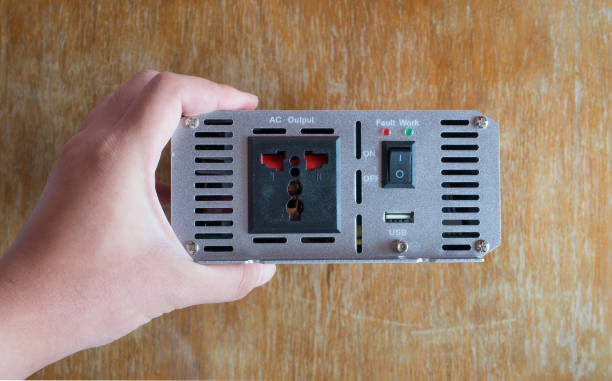In an age where power availability is crucial for our daily activities, 12V power inverters have emerged as invaluable tools for various applications. From outdoor adventures to home emergencies, these devices allow us to harness the power we need when we need it. This guide will delve into what 12V power inverters are, their types, advantages, applications, and tips for selecting the right one for your needs.
What is a 12V Power Inverter?
A 12V power inverter is a device that converts direct current (DC) electricity from a 12V battery into alternating current (AC) electricity. Most household appliances and electronics operate on AC power, making these inverters essential for using battery power in practical ways.
Types of 12V Power Inverters
There are primarily two types of 12V power inverters: modified sine wave inverters and pure sine wave inverters.
Modified Sine Wave Inverters
Modified sine wave inverters are generally more affordable and suitable for a variety of basic applications. They produce a waveform that is not as smooth as a pure sine wave, which can make them less compatible with sensitive electronics. However, they work well for simple devices like lights, fans, and some small appliances.
Pure Sine Wave Inverters
Pure sine wave inverters create a clean and smooth waveform that closely resembles the power supplied by the electrical grid. This makes them ideal for running sensitive equipment such as computers, medical devices, and audio systems. While they tend to be more expensive, a pure sine wave 12V power inverter can help protect your valuable electronics and improve performance.
Benefits of Using 12V Power Inverters
Portability: One of the primary benefits of 12V power inverters is their portability. They are lightweight and compact, making them easy to transport for outdoor activities or emergencies.
Versatility: These inverters can power a wide range of devices, from small gadgets like smartphones to larger appliances like refrigerators, making them incredibly versatile.
Convenient Backup Power: A 12V power inverter can serve as an effective backup power solution during outages, allowing you to keep essential devices running.
Solar Integration: Many people use 12V power inverters in conjunction with solar panels. They convert the DC electricity generated by solar systems into AC electricity, allowing you to power your home sustainably.
Applications of 12V Power Inverters
Camping and Outdoor Use
For those who love the outdoors, a 12V power inverter is a must-have. It allows you to power lights, cook meals, and charge devices while camping. Whether you’re in a tent or an RV, having access to electricity can significantly enhance your experience.
RV and Boat Applications
RVs and boats often rely on 12V power inverters to provide electrical power for various appliances. They enable you to use standard household appliances on the go, enhancing comfort during long trips.
Home Use
In residential settings, a 12V power inverter can be part of a home solar power system. It converts the energy generated from solar panels into usable electricity for your household appliances. This can reduce reliance on the grid and save money on energy bills.
Construction Sites
For construction workers, a 12V power inverter is invaluable for powering tools and equipment in locations without easy access to electricity. This capability can significantly boost productivity and streamline operations.
Choosing the Right 12V Power Inverter
When it comes to selecting a 12V power inverter, several factors should be considered:
Power Rating: Determine the total wattage of the devices you want to power. Choose an inverter that has a power rating higher than this total to avoid overloading.
Type of Inverter: Decide whether you need a modified sine wave or a pure sine wave inverter based on the sensitivity of the electronics you plan to use.
Portability: If you intend to move the inverter frequently, opt for a lightweight and compact model for easy transport.
Safety Features: Look for inverters that come with built-in safety features, such as short-circuit protection and thermal shutdown, to ensure safe operation.
Warranty and Customer Support: Consider purchasing from reputable brands that offer warranties and good customer service, as this can be helpful if any issues arise.
Tips for Using Your 12V Power Inverter
To get the most out of your 12V power inverter, follow these tips:
Install Properly: Make sure the inverter is installed in a well-ventilated area to prevent overheating.
Use the Right Battery: Pair your inverter with a deep-cycle battery that can handle high discharge rates, ensuring a reliable power source.
Regular Maintenance: Regularly check the inverter for any signs of wear or damage. Keeping connections clean can also enhance performance.
Avoid Overloading: Be mindful of the wattage requirements of your devices and never exceed the inverter’s power rating.
Conclusion
12V power inverters are essential devices that offer flexibility and convenience for various applications, from camping trips to home emergencies. Understanding the different types, benefits, and applications of these inverters will help you make informed decisions. Whether you need portable power for outdoor adventures or a reliable backup source at home, a quality 12V power inverter can meet your needs and enhance your lifestyle. By keeping the tips and considerations outlined in this guide in mind, you can choose the right inverter for your situation and enjoy the freedom that comes with portable power.



